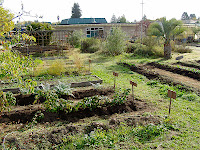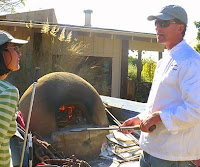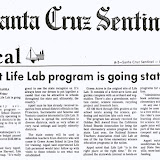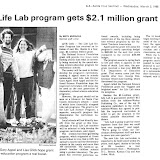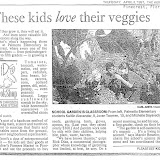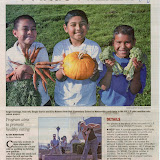 "Food,What?!" Strawberry Youth Blast
"Food,What?!" Strawberry Youth Blast coverage from the Santa Cruz Sentinel -- All things strawberry were the focus at the UCSC Farm and Garden Wednesday, as 300 county high and middle school students joined volunteers from Food, What?! for the 2010 Strawberry Blast.
Teenagers descended on the farm to celebrate the seasonal fruit. They harvested and tasted organic strawberries, made their own smoothies and ate fresh strawberry pies. But strawberries were just the tip of the Food What?! event, dedicated to food education.
A project of the nonprofit Life Lab Science Program, Food What?! has held the strawberry festival for three years, aiming to make it a cornerstone of nutritional education. Strawberries serve as a vehicle to make teenagers aware that healthy and affordable food is within reach, said Food What?! Director Doron Comerchero.
Students walked from booth to booth on the half-acre farm, testing their knowledge of fair trade, label understanding and health hazards related to fast food.
"We are countering the media influence of the fast-food industry," Comerchero said. "Kids are always told about what not to do. But it's super important to talk to them about the healthy alternatives."
James Smith, director of food services for Santa Cruz City Schools, also manned a nutritional stand. Smith started in the job last August and introduced changes to school lunches. Food services stopped buying prepackaged food, emphasized the importance of fruit and vegetables in a healthy diet and now buys 75 percent of its produce from county farmers, Smith said. But the former UCSC cook stressed the need for better education. "I can put anything out there, but it doesn't mean the kids are going to take it," Smith said.
See the rest of the article
See the "Food, What?!" Blog




